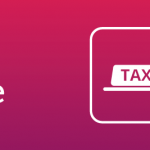Have you just purchased a motorhome? Are you looking forward to some fun trips and holidays in your motorhome? You can look forward to years of travel, but first you’ll need to buy some protection for your motorhome, which is called motorhome insurance.
What is a Motorhome?
A motorhome, or a campervan, is a recreational vehicle that offers a place to live. A motorhome typically includes a place for the driver and sleeping spaces for 2-8 people with a kitchenette, and usable water. They’re available in three different classes including:
Class A: this type of is similar to the American RV (recreational vehicle). These are usually larger than an RV and have a more streamlined appearance. The body of this class of motorhome is built around the engine and chassis, and they tend to be a bit more luxurious and more expensive.
Class B: these motorhomes are sometimes referred to as “panel van” motorhomes. They look like a large delivery van that has been turned into a motorhome. These have either been purposely built and registered as a motor after being built at the factory or have been converted from a regular pan van. They can also be a campervan, micro van or even a day van. These are smaller and usually don’t have room for a shower and a toilet. They also sleep fewer people than a Class A motorhome. A pop top roof is sometimes added to make the space inside a little roomier.
Class C: these motorhomes are the classic style and are quite common all over the UK. These look like a van from the front, where you’ll find places for a driver and a passenger. The living area is permanently attached to the cab, creating a box-like shape. Many of the Class C motorhomes provide a sleeping area above the driver and passenger seats, or this area may sometimes be used as storage. These generally are large enough to include a kitchen and bathroom and may sleep 2 adults and 2 children.
What’s a Motorhome Conversion?
This type of motorhome has been growing in popularity, and they’re a cheaper way of creating a campervan. These can be created out of vehicles of all types but are generally made from a large panel van. Individuals may do the conversions themselves, but the conversion is sometimes done by a professional company.
After conversion, these motorhomes must be re-registered as a motorhome in order to be used legally. Re-registering will involve reclassifying the vehicle from its original use to the new use as a converted motorhome. In this case, the motorhome will have to meet certain government requirements. These requirements can be found on Gov UK.
Do I Need a Special License to Drive my Motorhome?
That will depend. Let’s take a look.
- Passed driving test after 1st January 1997: in this case, your license will allow you to legally drive vehicles in Category B & B1. In other words, you can legally drive a vehicle that’s less than 3.5 tonnes. If the vehicle is over this, but falls under 7.5 tonnes, you’ll be required to pass a separate driving test. The heavier vehicles fall under Category C1. So, if your motorhome is under 3.5 tonnes, then you won’t need to pass another driving test.
- Passed your driving test before the 1st January 1997: in this case, you should be allowed to legally drive vehicles that come under the Category C1 on your driver’s license. In this case, you will not be required to pass another driving test for vehicles up to 7.5 tonnes.
To see which vehicles your driver license covers, just check both types of driving license. The paper license will clearly state (on the front) what you’re allowed to drive. The pink photocard will have this information listed on the back.
Now, one thing to keep in mind is if you turn 70, you’ll need to renew your license. In order to keep from renewing the new license type, without losing your previous vehicle allowance, ask your doctor to fill out a medical form that will say you’re able to drive in the category you had previously. This may cost extra, but it will allow you to keep you’re the category you had on your last license.
What Type of Insurance Do I Need for my Motorhome?
We’ve covered quite a bit of information on what a motorhome is. Now, let’s review the types of insurance coverage available to protect your motorhome.
In the UK, under the Road Traffic Act 1988, you’re legally required to have insurance on all vehicles driven on public roads. The minimum legal requirement is third party only coverage. Overall, there are three levels of insurance to choose from, including:
Third party only: this is the legal minimum and the lowest amount of insurance coverage you can have. This type of coverage only protects you against damage you’ve caused to other vehicles or people. This coverage is the cheapest, but keep in mind it does not cover you, your passengers or the vehicle.
Third party fire and theft: this coverage includes all of the above, plus protects your vehicle against theft and fire.
Comprehensive: this is the best coverage you can have, and it usually costs more. However, the cost may be worth it as this level of protection covers everything above, plus you and damage to your vehicle. If you’re found at fault for an accident, the insurer still pays for the repairs to your motorhome, as well as the vehicle of the third party.
Are There Add-ons for Motorhome Insurance?
Yes! There are certain add-ons that provide coverage for things not covered by the regular policy, including:
Key cover: if your keys are lost or stolen, this add-on will pay for the replacement of your keys. If you’re locked out of the motorhome, it will also pay the cost of a locksmith.
Motorhome breakdown coverage: this type of coverage can bring peace of mind on those long trips. What will you do if the vehicle breaks down? With breakdown coverage, all you have to do is call for help. The add-on covers everything include flat tires and more.
Legal protection: if you suffer an injury or financial loss from an accident caused by a third party, this add-on will pay the expense of lawyer fees and more.
Motorhome excess protection: if you’re in an accident, the add-on you may have to pay the excess before you can make a claim. With this add-on, however, the insurance will repay the excess when the claim’s been settled. Some people choose to buy this add-on because you can choose the higher voluntary excess and then reduce your premium.
There’s a lot to consider with motorhome insurance, so it’s a good idea to call an experienced professional insurance agent for additional guidance on which type of insurance would be the best fit for your circumstances.


